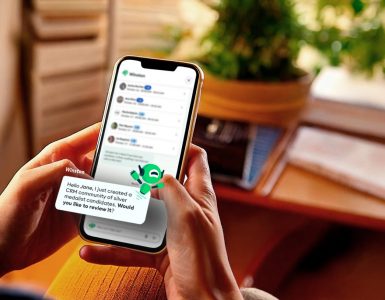Generation Z (born 1997-2012) workers comprise about 12.6% of the workforce as of 2020, according to data from the U.S. Bureau of Labor Statistics, but will account for 27% of the workforce by 2025. As the years progress, employers will need to adapt to Gen Z as they seek to hire and retain employees. Luckily, their preferences are good for all workers, not just young ones.
Well-being and Mental Health
According to Indeed, 80% of all job seekers look for information about employee wellbeing when they are considering a job opportunity. For GenZ, this need is more acute compared to other generations:
- An astounding 55% of Gen Z workers report having either been diagnosed with or having received treatment for mental illness (compared with 31 percent of people aged 55 to 64 reporting the same).
- 83% of employees believe their well-being is just as important as their salary, and 85% of employees are more likely to stay in their role if their employer focuses more on well-being.
Promoting sustainable ways of working is good not just for Gen Z, but for all employees. Employers can lead the way in preventing burnout during times of global crisis.
- Nearly half of employees (48%) say their well-being declined in 2022, and 28% say they are miserable at work.
- On Glassdoor, 63% of U.S. companies’ benefit reviews report using the words “mental healthcare.”
- In 2022, less than half of job ads on Indeed contained health insurance information.
Companies that lead the way in supporting employee well-being and promoting it to job seekers have a competitive advantage in 2023 and beyond. To capture candidates’ interest, be sure your wellness initiatives are mentioned on your career site.
Diversity, Inclusion, Equity, and Belonging
Gen Z is the most diverse generation to date.
- In the US, 52% of Gen Z’ers identify as non-Hispanic white, compared to 61% of millennials and 70% of Gen X’ers when they were the same age.
- A Gallup US survey found that 15.9% of Gen Z identify as LGBT, compared to 9.1% of Millenials and 3.8% of Gen X.
Gen Z candidates look for employers’ commitment to DEIB when applying for jobs. They also want to see themselves represented when they apply for jobs.
- 75% of Gen Z candidates said they would reconsider applying to a company if they were unsatisfied with its D&I efforts.
- When analyzing a company, interacting with a diverse set of individuals throughout the hiring process, was considered important by 78% of Gen Z women and 60% of Gen Z men.
Recent events have highlighted everyone’s awareness of diversity topics, and its definition has expanded far beyond race, gender, and sexual orientation. Companies that create a sense of belonging for everyone regardless of age, ability, neurology, family background, caregiver status, and so on will improve their ability to attract talent of all ages, not just those in Gen Z.
Upskilling and Career Development
It should be no surprise that the youngest generation in the workforce wants to learn and grow their skills.
- In early 2022, 76% of Gen Z professionals said they were looking for more opportunities to learn/practice new skills or expertise, compared to 55% of Millennials and 48% of Gen X.
In the height of the Great Resignation, many employees took the chance to upskill and ran with it by job-hopping.
- 74% of Gen Z and Millenials said they are ready to move on due to subpar skills-building support or a lack of career mobility options.
But the layoffs of 2022 and a changing economic environment left employees with a desire to hold on to their jobs. Instead of looking to upskill by job hopping, employees of all ages are looking to their employers to help them and even skill-building on the side.
- By October 2022, 89% of all employees said they’re “extremely” or “somewhat” motivated to improve their skills in the coming year, and 88% are already putting a significant amount of time and effort toward upskilling.
Evidence is everywhere that the world is changing fast. Employees of all ages can sense that upskilling is necessary not just for career advancement but to keep working at all.
Showing candidates how you can help them grow their skills into the future will help you attract the most motivated employees. And by evaluating them fairly on the skills they already have, you’ll offer validation for their skill-building efforts.
Want to learn more about hiring for skills? Read our ebook A Practical Guide to Hiring for Skills.







